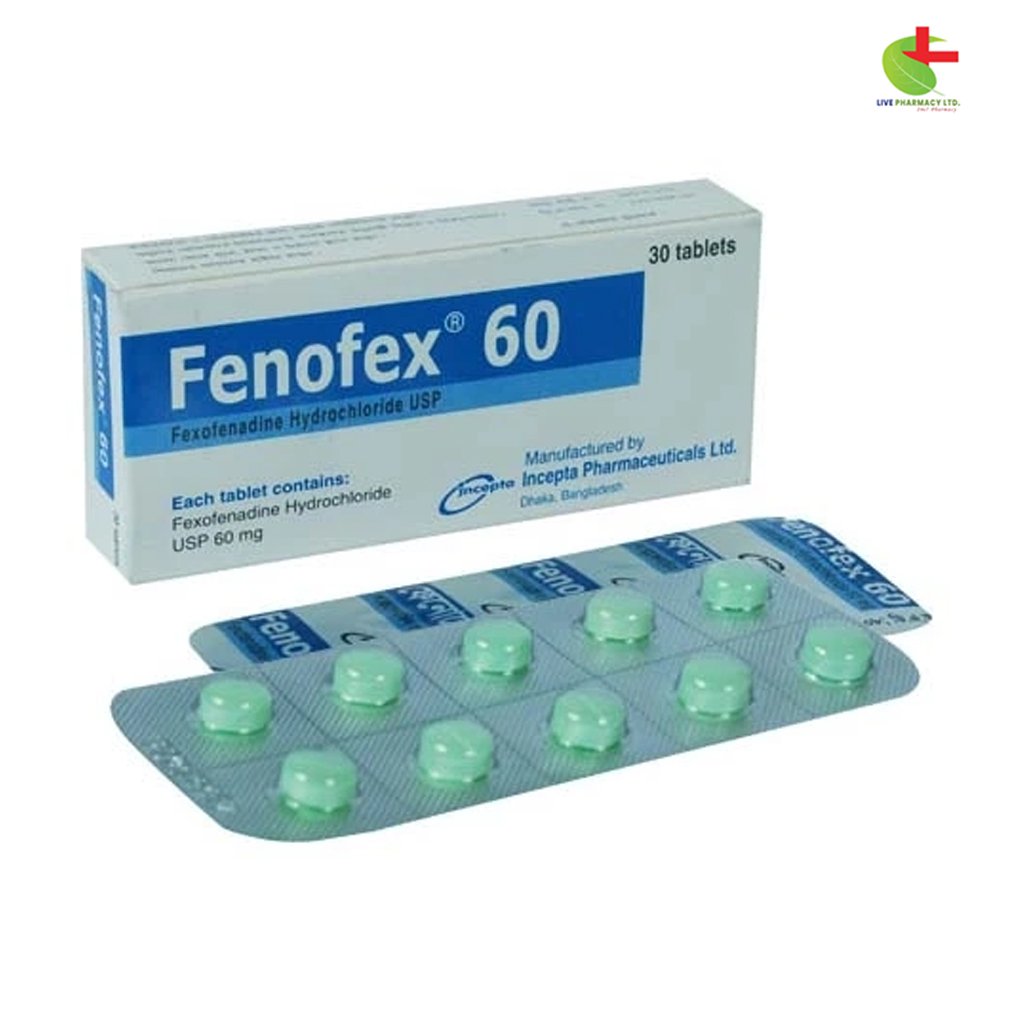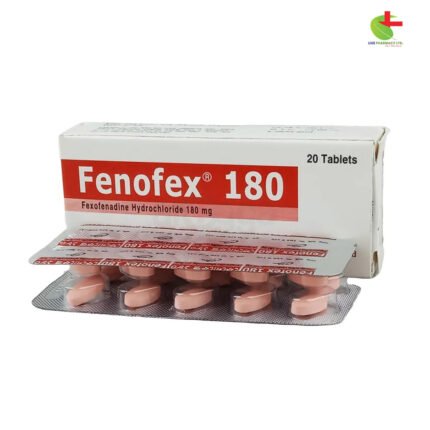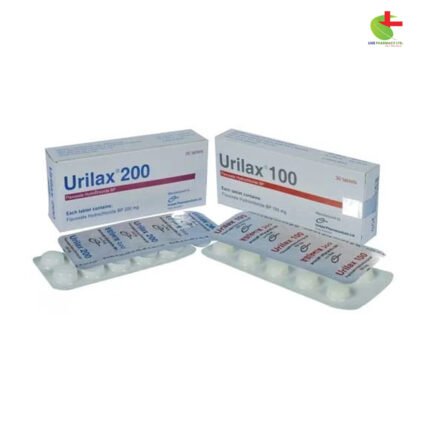Fenofex 60
50.00৳ Strip
- Fenofex is a non-sedating antihistamine for relieving allergic rhinitis and chronic idiopathic urticaria symptoms.
- Effective for adults and children aged 12 and older, it alleviates sneezing, runny nose, itchy eyes, and hives.
- Enhances overall quality of life and work productivity.
- Safe for use under medical supervision, providing targeted relief without sedation.
 Brand
Brand
|
Incepta Pharmaceuticals Ltd |
|---|---|
 Generics
Generics
|
Fexofenadine Hydrochloride |
 Type
Type
|
Tablet |
Indications
Allergic Rhinitis:
Fenofex is indicated for relieving symptoms related to seasonal and perennial allergic rhinitis in adults and children aged 12 and older. It effectively addresses symptoms such as sneezing, runny nose, itchy and watery eyes, and throat irritation. Fenofex enhances quality of life and boosts productivity in daily activities.
Use only under the guidance of a registered physician.
Chronic Idiopathic Urticaria:
Fenofex is also indicated for alleviating symptoms of chronic idiopathic urticaria in adults and children aged 12 and older. It significantly reduces the severity of symptoms, including the number of hives and itchiness, thereby improving overall quality of life and productivity.
Use only under the guidance of a registered physician.
Pharmacology
Fenofex acts as an H1 histamine receptor antagonist, addressing hypersensitivity and allergic reactions. When exposed to allergens, mast cells and basophils release histamine, which binds to H1 receptors, triggering further inflammatory responses. Fenofex functions as an “inverse agonist,” stabilizing the inactive form of the H1 receptor and preventing excessive activation. It selectively targets H1 receptors without causing sedation or other common side effects associated with antihistamines, as it does not penetrate the blood-brain barrier.
Dosage & Administration
Allergic Rhinitis:
- Adults and Children (12 years and older):
- Tablet: 60 mg twice daily, or 120 mg once daily, or 180 mg once daily.
- For impaired renal function: 60 mg once daily.
- Children (6 to 11 years):
- Tablet: 30 mg twice daily or 60 mg once daily.
- For impaired renal function: 30 mg once daily.
- Children (2 to 11 years):
- Suspension: 30 mg (5 ml) twice daily.
- For impaired renal function: 30 mg (5 ml) once daily.
Chronic Idiopathic Urticaria:
- Adults and Children (12 years and older):
- Tablet: 60 mg twice daily, or 120 mg once daily, or 180 mg once daily.
- For impaired renal function: 60 mg once daily.
- Children (6 to 11 years):
- Tablet: 30 mg twice daily or 60 mg once daily.
- For impaired renal function: 30 mg once daily.
- Children (6 months to under 2 years):
- Suspension: 15 mg (2.5 ml) twice daily.
- For impaired renal function: 15 mg (2.5 ml) once daily.
- Children (2 to 11 years):
- Suspension: 30 mg (5 ml) twice daily.
- For impaired renal function: 30 mg (5 ml) once daily.
Use only under the guidance of a registered physician.
Interactions
Fenofex does not undergo significant hepatic metabolism, minimizing potential drug interactions. Co-administration with erythromycin or ketoconazole may increase fexofenadine levels without affecting the QT interval or increasing adverse reactions. Avoid taking antacids containing aluminum or magnesium within two hours of Fenofex, as they may reduce its bioavailability.
Contraindications
Fenofex is contraindicated in individuals with known hypersensitivity to fexofenadine hydrochloride or any of its components.
Side Effects
Common side effects include headache, drowsiness, and dizziness, similar in frequency to placebo. Rarely, hypersensitivity reactions such as angioedema or anaphylaxis have been reported. Other potential effects include gastrointestinal disturbances and skin reactions.
Pregnancy & Lactation
Limited data on fexofenadine use during pregnancy is available. Animal studies show no harmful effects, but it should only be used if absolutely necessary. Fexofenadine can pass into breast milk, so caution is advised for nursing mothers.
Precautions & Warnings
Fenofex should be used cautiously in elderly patients and those with renal or hepatic impairments. Monitor patients with cardiovascular conditions, as antihistamines can cause tachycardia and palpitations. It is generally safe for driving and operating machinery, but individual responses may vary.
Use in Special Populations
- Renal and Hepatic Impairment: Adjust dosages based on individual renal function.
- Elderly Patients: Monitor for increased bioavailability and adjust dosages as necessary.
Overdose Effects
Symptoms of overdose may include dizziness, drowsiness, and dry mouth. High doses have been administered without significant adverse effects. Supportive treatment is recommended; hemodialysis is not effective for removal of fexofenadine from the bloodstream.
Therapeutic Class
Non-sedating antihistamines
Storage Conditions
Store in a cool, dry place away from light and heat. Keep out of reach of children.













Reviews
There are no reviews yet.